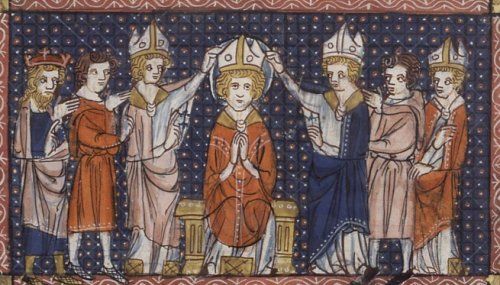Hilary was exiled to Phrygia in Turkey in 356 by Arian bishops at the so-called “synod of false apostles” by order of the emperor Constantius, who had aligned himself with the decisions at the synod. Following the emperor’s death in 361, Hilary returned to Poitiers, where he remained until his own demise six years later.
In his most important work, “De Trinitate,” St. Hilary “describes his personal journey to a knowledge of God and is concerned to show how sacred Scripture clearly testifies to the divinity of the Son and his equality with the Father, not only in the New Testament but also in the Old, where the mystery of Christ is already apparent,” the pope said.
The bishop of Poitiers, Benedict said, “develops all his Trinitarian theology on the basis of the formula of baptism, which the Lord himself gives us, in the name of the Father, of the Son, and of the Holy Spirit.”
Benedict explained how St. Hilary presents “precise rules” for a correct reading of the Gospel when he indicates how “some pages of Scripture speak of Jesus as God, others underline his humanity, others still … his preexistence at the side of the Father … his descent to death … his resurrection.”
“Firm in his opposition to radical Arians, Hilary showed a more conciliatory spirit towards to those who were prepared to confess that the Son was like to the Father in essence, always seeking to lead them to a complete faith: … not just likeness but equality … in divinity.”
The beauty of Hilary’s words and of his consciousness of the seriousness and grace of his baptism lead him to pray:
Credit: Source link




